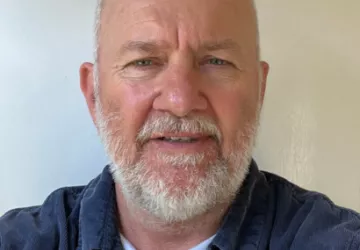
Dr Miles Thomas
Programme Director
Department of Professional Psychology , School Of Psychology
Dr Miles Thomas is an HCPC registered Educational and Child Psychologist with over 20 years of experience working in Local Authorities including Senior Specialist roles. He has a particular interest in Solution Focused Approaches, Organisational change and the Social Emotional and Mental Health of children and young people. He is currently Research Director for the Professional Doctorate in Educational and Child Psychology at UEL.
Areas Of Interest
Miles interests include the application of Solution Focused approaches, Critical Psychology and Inclusion. He is also interested in Research Methods including Action Research, Participatory approaches, Thematic Analysis, IPA and Narrative approaches. He is a chartered Coaching Psychologist with the British Psychological Society and interested in Coaching, Positive Psychology and Performance. He is Co-Editor of an open access journal Educational Psychology
OVERVIEW
Miles Thomas completed his Post Graduate Certificate in Education at the University of Bath and taught in the UK and Spain. He has a Masters in Educational Psychology and a Doctorate in Child and Educational Psychology from UEL. He is an Associate Fellow of the British Psychological Society and a Fellow of the Higher Education Academy.
CURRENT RESEARCH
Miles is currently undertaking research with Hackney Learning Trust into the effectiveness of parent coaches. He has supervised over 40 professional Doctorates to completion and currently supervises the following Doctoral projects.
- Broughton, H. (2024) The role of educational psychologists, virtual schools and designated teachers in supporting previously looked after children.
- O'Leary, S. (2024) Promoting the voices of children and young people who have experienced Domestic Abuse.
- Challoner, E. (2024) A Qualitative Exploration of Black Parents’ and Carers’ Experiences of Working with an Inner-London Educational Psychology Team.
PUBLICATIONS
- Doyle M. and Thomas, M. (2022) Teacher perceptions of mental health provision in secondary schools during the Covid -19 pandemic Research in Teacher Education May 2022 12-19 rite-may-2022-doyle-thomas.pdf (uel.ac.uk)
- Thomas, M. et al (2021) Position Statement on Anti-Racism and Decolonisation Educational Psychology Research and Practice 6(1), p.1-7
- Speed, E. Bunn, H. and Thomas M. (2021) The English Baccalaureate and devaluation of the arts in school: Students’ perceptions of subject value, and psychological and social impact DECP 38 2 and BPS Interactive Poster
- Rae, T. and Thomas, and Walshe, J. (2018) The Essential Guide to Using Solution Focused Brief Therapy Hinton House
- Mohammed, S. and Thomas, M. (2017) The mental health and psychological well-being of refugee children and young people: An exploration of risk, resilience and protective factors Educational Psychology in Practice, 33(3), 249–263
- Garner, J. and Thomas, M. (2011) Nurture Groups in the Secondary Phase Journal of Emotional and Behavioural Difficulties
TEACHING
Miles is Module Leader for PY8115 Educational Psychology Complex Systems and Organizational Change.
Miles also teaches on other modules on the Professional Doctorate in Educational Psychology and other Psychology programmes at UEL.
Publications
The last four years of publications can be viewed below.
Full publications list
Visit the research repository to view a full list of publications
- Editorial Educational Psychology Research and Practice. 9 (2), p. 1. https://doi.org/10.15123/uel.8xwq6
- Teacher perceptions of mental health provision in secondary schools during the Covid-19 pandemic Research in Teacher Education. 12 (1), pp. 12-19. https://doi.org/10.15123/uel.8xvyw
- Editorial Educational Psychology Research and Practice. 8 (1), p. 1. https://doi.org/10.15123/uel.8v1v5
- Editorial Educational Psychology Research and Practice. 7 (2), p. 1. https://doi.org/10.15123/uel.8q735
- Professional Doctorate in Educational and Child Psychology at the University of East London: Position Statement on Anti-Racism and Decolonisation Educational Psychology Research and Practice. 6 (1), p. 1–7. https://doi.org/10.15123/uel.89124


